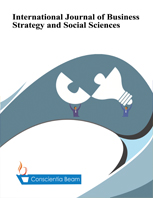Social-Demographic and Cultural Determinants of Nigerian Women's Age at First Birth Using the Log Logistics Accelerated Failure Time Model
DOI:
https://doi.org/10.18488/171.v5i1.3039Abstract
Early age at first birth has many negative effects on women which includes but are not limited to truncation in education, maternal mortality, sexually transmitted infections, difficulties resulting from pregnancy before a woman is physically mature, cervical cancer, and missing life opportunities in general. In this study, we determined the factors that influence the age at first birth so as to promote child and maternal health in Nigeria. Secondary data from the 2018 Nigeria Demographic and Health Surveys (NDHS) and the Accelerated Failure Time (AFT) model were used in this study to establish the determinants of a woman’s age at first birth in Nigeria. The Log logistics AFT model was used after the dataset failed to satisfy the Cox Proportional Hazard (CPH) model’s assumption. The results show that women from the North Central (NC) will give birth before the women in the North West (NW) and South South (SS). Those with no education will give birth earlier than those with secondary education. Women who do not know their husband’s status will give birth earlier than those that want the same thing as their husband. The women that are more exposed to early first birth as discovered from this study should be empowered and educated so as to discourage early marriage. Policy makers should take decisions to help promote the health of the mother and her child. This will reduce the number of school dropout of women and more opportunities for women over the course of life.

